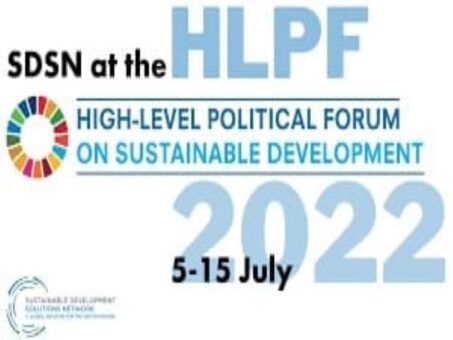ISLAMABAD: The civil society of Pakistan appreciated the government’s presentation of voluntary national review (VNR) at the UN High Level Political Forum (HLPF) in New York.
The civil society organizations (CSOs) on Friday pointed out addressing the reported regressions and stagnation on critical goals.
It said that several concerns still exist on critical sustainable development goals (SDG) priorities in the absence of policy coherence, efficient implementation and review mechanisms.
READ MORE: Need stressed on integrated approach for SDGs
These concerns were expressed in a joint statement of representatives from a number of CSOs including Pakistan Development Alliance, Parliamentarians Commission for Human Rights, AwazCDS-Pakistan, Sightsavers Pakistan, Malala Fund UK, Save The Children, Umang Champions, The Brook International, UGOOD, PCE, PODA, HomeNet Pakistan, Roots for Equality, Karachi Research Institute and LifeSavers.
Pakistan is attending the UN HLPF (July 5-15) in New York under the auspices of ECOSOC under the theme “Building back better from the coronavirus disease (COVID-19) while advancing the full implementation of the 2030 Agenda for Sustainable Development”.
The HLPF also reviewed in-depth SDGs on quality education, gender equality, life below water, life on land, and partnerships for the goals.
READ MORE: Fiscal reforms to help Pakistan generate funding to meet SDGs targets: IMF official
During the session, representatives of 44 countries carried out voluntary national reviews (VNRs) of their implementation of the 2030 Agenda for Sustainable Development.
The CSOs, while pointing out over 22 million children are out of school, called for holistic planning, equitable financing, and stronger political will to enhance the educational outcomes prioritizing the millions left behind.
At least 4-6 per cent of GDP or 20-25 per cent of public expenditure must be ensured to protect peoples’ fundamental right to education, as per Article 25A, they suggested.
READ MORE: SBP launches report on SDGs from banking perspective
They were of the view that the gender equality requires multi-sectoral gender-sensitive planning based on comprehensive vulnerability assessment for achieving gender-responsive social protection, health and education outcomes, protection from violence and disasters, and protection of right to inheritance, employability and political participation.
For the protection of civic spaces and democratic accountability, they emphasized for CSOs’ meaningful inclusion across agenda-setting and planning processes to avoid tokenistic representation.
The resolved that the civil society needs a world that is considerate of our collective concerns upholding the ideals we all believe in.
